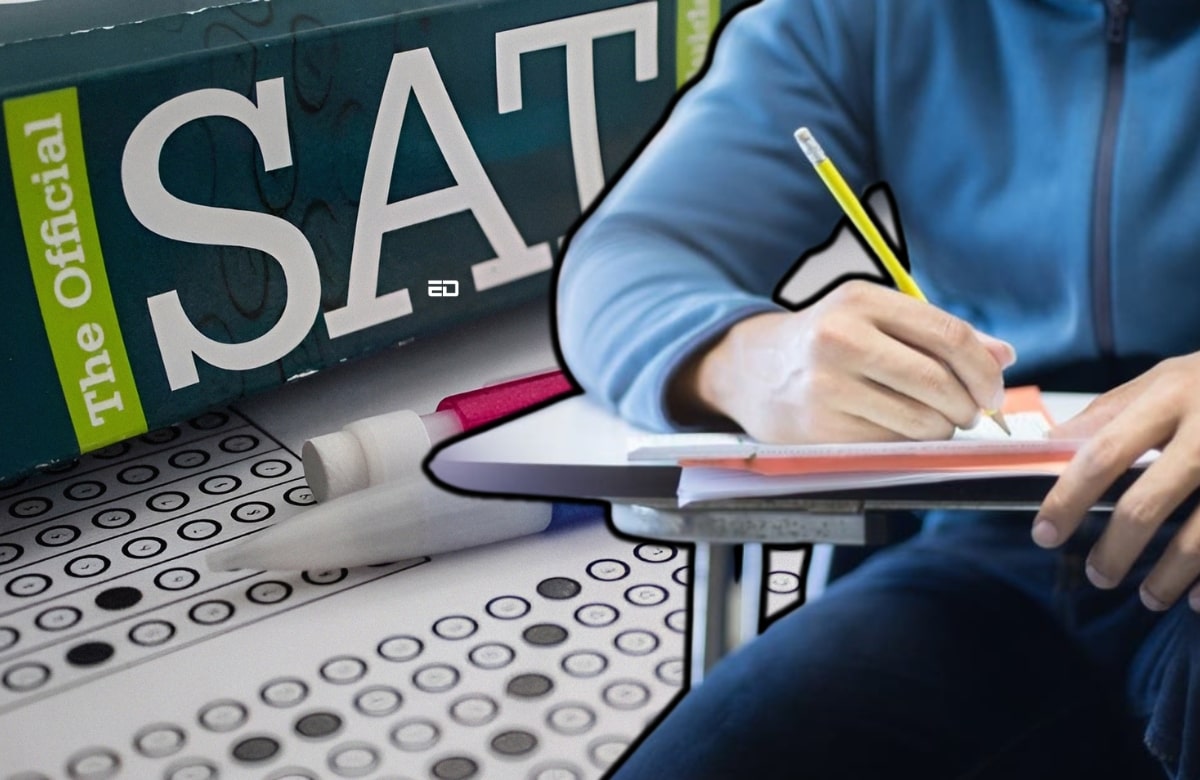After the Covid pandemic made it difficult for students to sit for the SAT (Scholastic Assessment Test) and ACT (American College Testing), dozens of selective colleges in the US as well as India, dropped this requirement as a criterion for undergraduate admissions.
Many people have hailed the change as a victory for equity in higher education. However, as many colleges have stopped asking for SAT scores, on the theory that they hurt diversity, research says something else.
Why Did Colleges Conduct Standardized Tests Afterall?
Research shows that standardised test scores contain real information, helping in the prediction of college grades, chances of graduation and post-college success. Grade inflation in recent years has made test scores more reliable than high school grades.
Sometimes, a lack of test scores causes a difficulty for admission officers in distinguishing between applicants who are likely to do well at elite colleges and those who are likely to struggle.
Researchers who have analyzed this issue, say that test scores can be particularly helpful in identifying lower-income students and under-represented minorities who will thrive. Although these students do not score as high on average as students from affluent communities, a solid score from a student belonging to a less-privileged background is often a sign of enormous potential.
Christina Paxton, President of Brown University in the US, recently wrote, “Standardised test scores are a much better predictor of academic success than high school grades.”
An economics professor at the same university said, “Test scores have vastly more predictive power than is commonly understood in the popular debate.”
The data documenting the predictive power of standardised tests is growing fast. In the study of Ivy Plus colleges, experts looked at several measures of college success, such as whether students did well enough to earn admission to a top graduate school or be hired by a desirable company. Standardised test scores were indeed a good predictor. “The SAT just tells you a lot about how well prepared students are for college,” said an expert.
Also Read: FestX 3.0 By PCCOE Is A Celebration Of Infinite Possibilities From Minds With Passion For Innovation
So Why Have Colleges Fled Standardized Tests?
The strongest arguments against these tests come from educational reformers who want to rethink elite higher education in fundamental ways. According to them, the country’s top colleges should not be trying to identify the very best high school students; rather they should use their resources to educate a diverse mix of good students and lift social mobility in the process.
Comeaux, a professor at the University of California, Riverside, and co-chair of the state’s review of standardised tests, favours this approach. He agrees that the ACT and SAT predict later success, but he prefers a stripped-down admissions system in which colleges set minimum requirements, based largely on high school grades and then admit students by lottery.
That’s not so different from what many colleges are already doing. For one thing, standardised tests are very easy to dislike. They create stress for millions of teenagers, seeming to reduce the talent and potential of a human being to a single number.
The SAT’s former name, the Scholastic Aptitude Test, implied a rigour that even its current defenders would not claim. The pandemic created an opportunity for American society to cast off a tradition that few people enjoyed.
Why Haven’t Colleges Reinstated Their Test Requirements?
The dropping off of SAT scores as a criterion for UG admissions was initially described as temporary, but nearly all of these colleges have since stuck to a test-optional policy. The test critics worry that reinstating test requirements will reduce diversity.
Standardised tests have become unpopular among political progressives, and university campuses are dominated by progressives. Many consider the tests to be unfair also because there are score gaps by race and class.
The SAT debate comes down to dozens of elite colleges. The people who run these institutions agree that social mobility should be core to their mission, which is why they give applicants credit for overcoming adversity.
Image Credits: Google Images
Sources: Indian Express, The Economic Times, Times of India
Find the blogger: Unusha Ahmad
This post is tagged under: SAT, USA, India, ACT, abroad, study abroad, UG, college, admissions, students, standardized tests, grade inflation, high school, elite colleges, Ivy League colleges, Brown University, MIT, University of California
Disclaimer: We do not hold any right, copyright over any of the images used, these have been taken from Google. In case of credits or removal, the owner may kindly mail us.
Other Recommendations:
This Is How Indian Students Face Scams And Frauds While Pursuing Education In UK


































